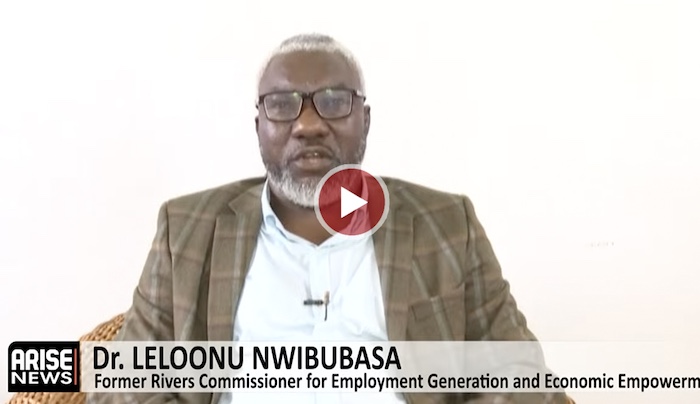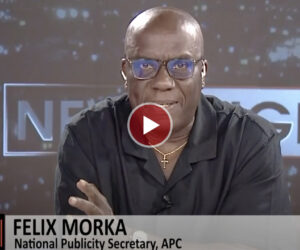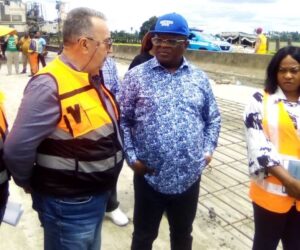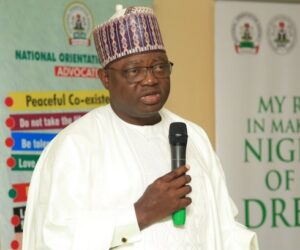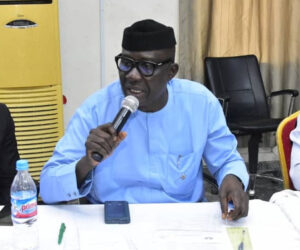
Former Rivers Commissioner for Employment Generation and Economic Empowerment, Dr. Leloonu Nwibubasa vowed that oil exploration will never resume in Ogoniland unless Nigeria confronts long-standing demands for autonomy, equity, environmental justice, and accountability for decades of repression.
Speaking in an interview with ARISE NEWS on Thursday, Nwibubasa declared that the Ogoni struggle is not about handouts or token gestures, but about survival, dignity, and fairness insisting that until critical political, economic, and environmental issues are resolved, the people will resist any attempt to restart drilling in their land.
“First, I must congratulate the federal government for choosing the path of dialogue and not the path of forceful re-entry into Ogoniland as we have seen in other administrations, But let it be clear, political autonomy, economic participation, and environmental remediation remain the minimum conditions before any serious conversation about oil can begin.”
Nwibubasa stressed that the demands of the Ogoni people are not new, but firmly rooted in the Ogoni Bill of Rights, which for more than three decades has called for self-determination, a fair share of oil revenues, and a comprehensive clean-up of their devastated environment. He praised the work of the federal dialogue committee, which recently submitted its report to President Bola Tinubu, but warned that the process must translate into concrete action. These things are not new, They remain part of the Ogoni Bill of Rights political autonomy, fair participation in the economy, and environmental remediation. What the committee submitted is comprehensive, but it must not end as paperwork. It has to be implemented.”
“The piece submitted by the dialogue committee is comprehensive. It represents the view of the common Ogoni man in every sphere and profession, from the base of the pyramid to the top.”
According to him, the demands presented to the federal government are rooted in the historic Ogoni Bills of Rights and fall into three core areas, political autonomy, a fair economic share, and environmental remediation. “These are the things broken down and given to the federal government to implement so that discussions on oil exploration can begin,” he stressed.
“We are part of the Niger Delta and part of Nigeria. Many states in this country produce nothing but are sustained by oil from our soil,” he said. “Asking for an Ogoni state is not an elephant’s chase. It is about fairness in a federation where contribution must align with representation.”
Nwibubasa emphasised that the Ogoni question extends far beyond oil. He pointed to decades of military repression, loss of lives, and economic deprivation suffered by the community, arguing that justice must include reparations and equal representation in federal appointments. “The Ogoni people are not asking for charity,” he said. “We are demanding equity in the resources taken from our land, respect for our environment, and acknowledgment of the injustices we have endured.”
He also broadened the conversation to include historical grievances and social justice. Decades of repression, particularly under military rule, left deep scars, he said. The Ogoni people, who lost countless lives during military crackdowns in the 1990s, deserve not only apologies but reparations. He welcomed President Tinubu’s recent pardon of some Ogoni activists as a positive step but stressed that justice must go further. “Our people were martyred for daring to speak up,”Nwibubasa said. “If Nigeria is serious about reconciliation, then truth, compensation, and equal representation in federal appointments must be part of the package.”
He also reiterated calls for the creation of an Ogoni state, describing it as neither unrealistic nor excessive. According to him, Ogoniland’s contribution to Nigeria’s economy justifies statehood within the federation, particularly given the sacrifices its people have made. “Asking for a state is not an elephant’s chase,” Nwibubasa insisted. “It is a legitimate call rooted in our contribution to Nigeria’s economy and the sacrifices of our people.”
On the ongoing environmental remediation project, Nwibubasa expressed concern that gains could be undermined if oil exploration returns without strict safeguards. He cautioned that reinvestment in exploration must not undo the progress made in clean-up efforts and called for a new model of partnership where the federal government, companies, and host communities share responsibility and benefits equitably.
“It is not enough to build primary schools and call it development,” he argued. “If you are taking from our land, we must see proportional investment in our lives, our environment, and our future.”
Beyond political autonomy, Nwibubasa underlined the urgent need for economic justice. He said the current Petroleum Industry Act (PIA) and other legislative frameworks still leave host communities at the mercy of companies and state governments, denying them true equity in the wealth generated from their resources. “We are demanding a new model,”he declared. “One where the federal government, the oil companies, and the host communities are equal stakeholders, and where Ogoni people receive direct equity for their own development.”
Environmental justice, he added, remains another critical pillar. While acknowledging progress in the ongoing clean-up project initiated after years of struggle, Nwibubasa warned that restarting oil exploration without strict safeguards would undo the gains. “Remediation cannot be a side conversation,” he said. “If oil companies return to Ogoni without addressing pollution and without strict monitoring, then we are simply re-polluting already remediated soil.”
He highlighted that Ogoni demands go beyond resource control. “We are asking for political autonomy by creating a state for the Ogonis, for equity in oil wealth so our communities have real stakes, and for environmental justice to ensure responsible exploitation. Beyond that, we are also asking for compensation for the killings during military repression, and fair representation in federal appointments.”
Erizia Rubyjeana
Follow us on:

